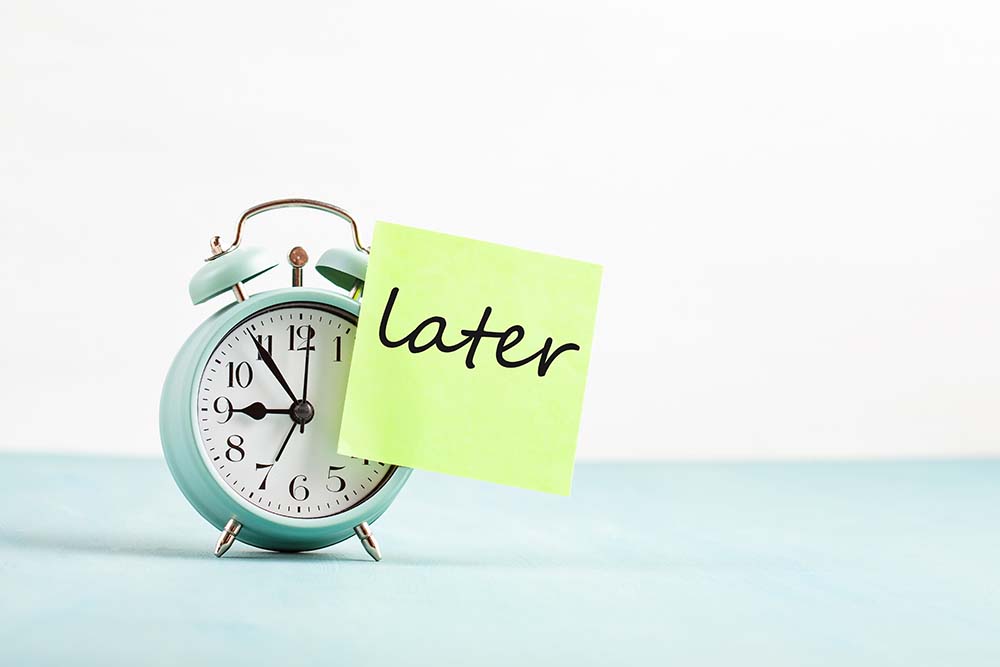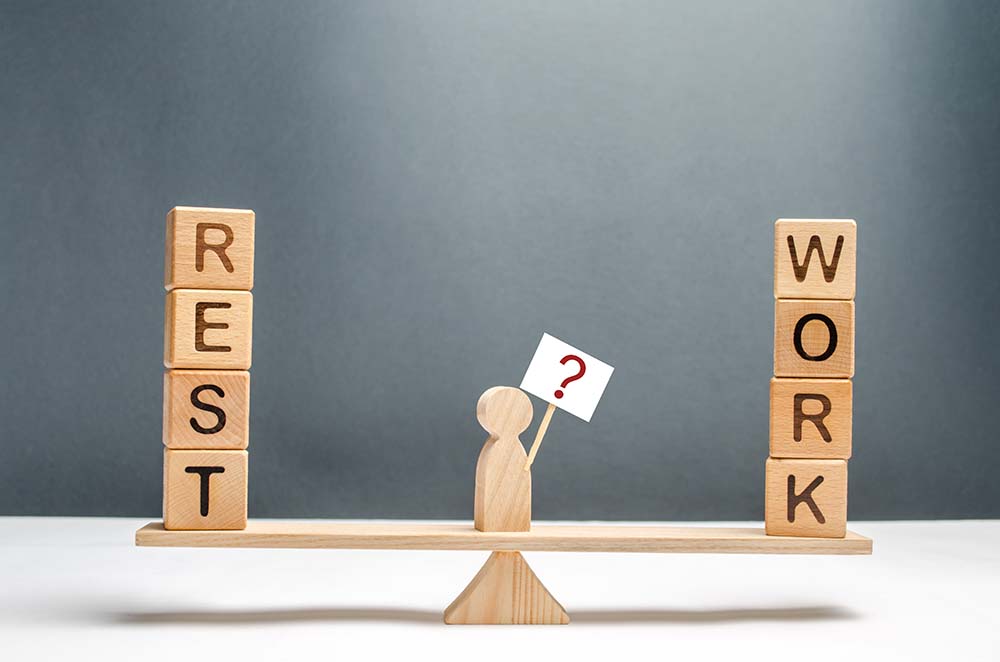Is there any good in the science of delay? The pandemic world is looking at procrastination as a virtue in 2022! Pandemic procrastination has changed the way we tackle to-do lists, meet deadlines and deal with timelines!
Procrastination is the new recharging, and social scientists believe it is good for you. It can be a motivator and energy booster. Procrastination gets a bad rap and people who delay things are perceived as lazy. But used strategically with creative tasks, it can actually be beneficial. Says psychiatrist Nisha Khanna, "Procrastination is an emotional coping strategy it gives the brain space to cope. The delay in tasks gives a breather to the brain, it can motivate the procrastinator. Energy is the strongest takeaway of procrastination. Rushing to fulfil tasks takes the motivation out of the process, slowing it down makes it more creative. In the pandemic, most of us are holding back more than ever. Even small tasks seem harder than before to check off. Delaying is the new mood management."
A recent article by The Atlantic triggered a debate that procrastinating things can be a virtue. The well-being industry swears a little procrastination is good for you. Time management has become emotion management, there’s no guilt in putting off tasks. Says photographer Sarika Gangwal, "Being overtly disciplined brings lot of stress, procrastinating gives us more mind space to handle everything after our emotions have settled. In the corporate world of super efficiency, procrastination is seen as a professional liability. But as a photographer, I feel it puts me in control and gives better results."

Procrastination: The New Strategy
Using procrastination to your advantage is not a bad strategy for getting the energy you need for routine tasks. In his book, Wait: The Art and Science of Delay, author Frank Partnoy, claims, “that when faced with a decision, we should assess how long we have to make it, and then wait until the last possible moment to do so.” We must learn how to “manage delay,” to live happier lives. The author confesses, "I procrastinate in just about every possible way and always have, since my earliest memories."
The Greeks and Romans were great procrastinators. The wisest leaders embraced procrastination and did nothing till they absolutely had to. That gap between intention and action is known as culturally prescribed procrastination. Author Sudha Menon says, "I am the hit-reply-button-as - soon-as- email comes kind of person but the pandemic has changed that completely. While my pre-pandemic avatar had to act on every thought that popped into my mind, I no longer feel driven to do that. A recent 7-day isolation from Covid has made me realize that it is absolutely alright to not be constantly on the treadmill to nowhere. Given the transient nature of life these days I had consciously put the brake on my FOMO and knee-jerk actions. I know now that keeping empty spaces in your mind allows new ideas to come in. Procrastination, while not my cup of tea, is now helping me mull over an idea and get a new perspective on things. 2022 is my year to slow down and do fewer things better and at a slower pace."

The Science of Delay
Procrastination has a bad reputation. Almost everyone thinks it is negative, but there are times when procrastination can work in your favour. You don't have to be anxious when you put things off. Active procrastinators who postpone work for later are in control of their time and don’t bother about missing deadlines. Adam Grant, professor at the Wharton Business School in Pennsylvania says, "When you procrastinate, you're more likely to let your mind wander. That gives you a better chance of stumbling onto the unusual and spotting unexpected patterns." Author Manjiri Prabhu agrees, "I look at procrastination as an involuntary 'pause' on something one feels needs to be done right away. Your subconscious mind is aware that you are not yet ready for the task and the process of procrastination is actually, unknowingly gearing you up for the task. The 'Pause' is your subconscious mind's way of offering you an opportunity to step back, breathe, unwind as much as needed, prepare emotionally, mentally, creatively and get ready for the task. All this may happen over a few hours, days or weeks, but when you are ready, you do know it and then the task would be done effectively. So although on the face of it procrastination comes across as a negative, lazy act, to my mind it actually is a much required pause that helps you prepare better for a task, especially if it is a creative one."
In 2022, procrastination does not equal to laziness. Rather, the rush and hurry is the cause for worry! Some people 'rush into tasks' or pre-crastinate, they are super impatient. Don't be a chronic procrastinator, but learn strategic procrastination. John Perry, author of The Art of Procrastination: A Guide to Effective Dawdling, Lollygagging, and Postponing, writes, “If you go back through history of human culture, and take away every invention that was made by someone who was supposed to be doing something else, I’m willing to bet there wouldn’t be a lot left.”
The perks of procrastination are shining bright in the pandemic as well-being and mental health become the new focus. Learn the art of ‘managing delays’ to live happier. Mozart described how he discovered new melodies while he was eating in a restaurant, walking after a meal…So, wait it out to make that unexpected leap!